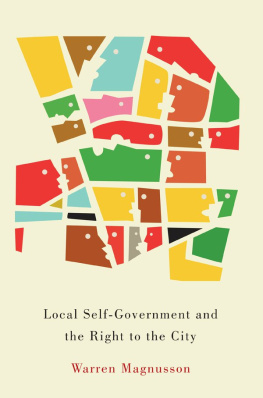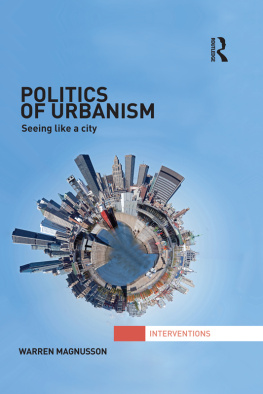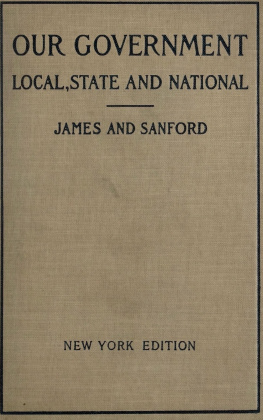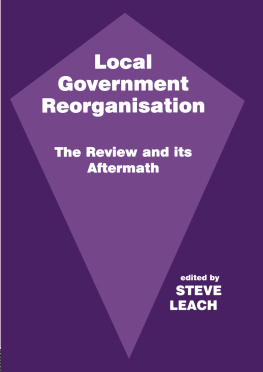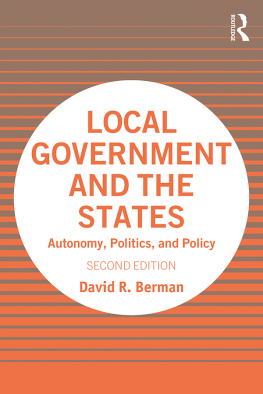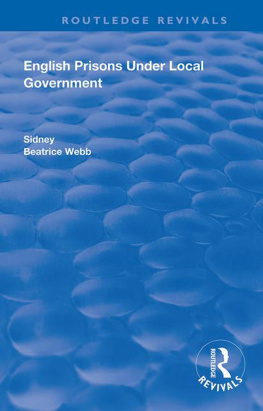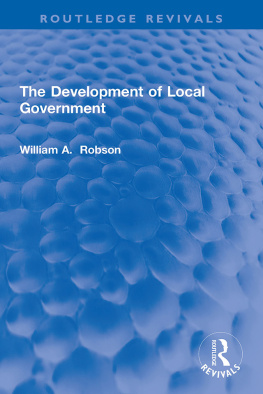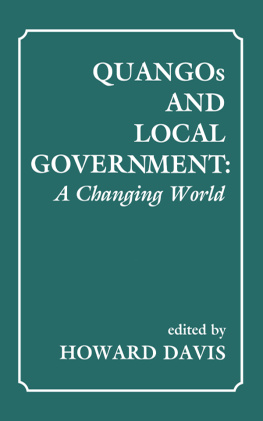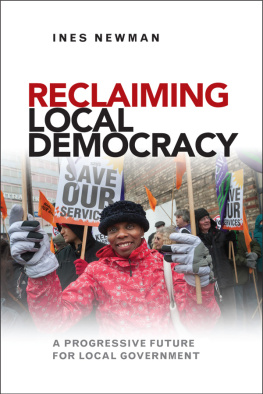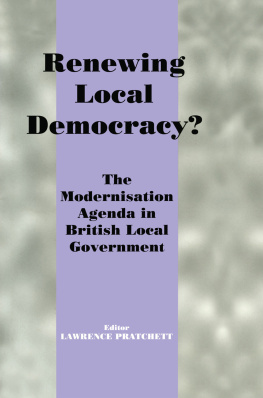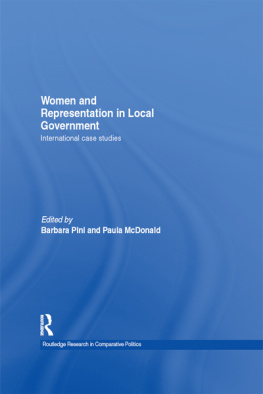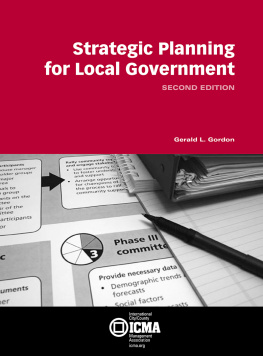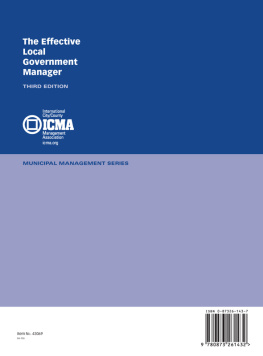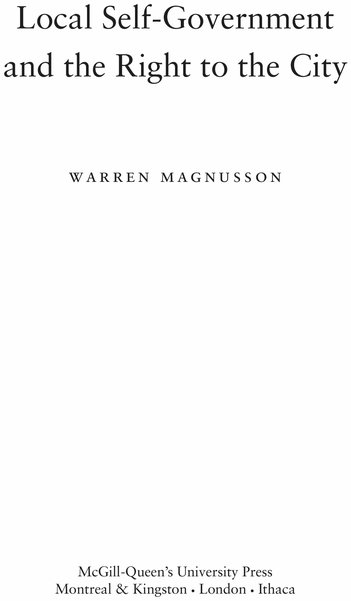MCGILL-QUEENS STUDIES
IN URBAN GOVERNANCE
Series editors: Martin Horak and Kristin Good
In recent years there has been an explosion of interest in local politics and the governance of cities both in Canada and around the world. Globally, the city has become a consequential site where instances of social conflict and of cooperation play out. Urban centres are increasingly understood as vital engines of innovation and prosperity and a growing body of interdisciplinary research on urban issues suggests that high-performing cities have become crucial to the success of nations, even in the global era. Yet at the same time, local and regional governments continue to struggle for political recognition and for the policy resources needed to manage cities, to effectively govern, and to achieve sustainable growth.
The purpose of the McGill-Queens Studies in Urban Governance series is to highlight the growing importance of municipal issues, local governance, and the need for policy reform in urban spaces. The series aims to answer the question why do cities matter? while exploring relationships between levels of government and examining the changing dynamics of metropolitan and community development. By taking a four-pronged approach to the study of urban governance, the series encourages debate and discussion of: (1) actors, institutions, and how cities are governed; (2) policy issues and policy reform; (3) the city as case study; and (4) urban politics and policy through a comparative framework.
With a strong focus on governance, policy, and the role of the city, this series welcomes manuscripts from a broad range of disciplines and viewpoints.
1 Local Self-Government
and the Right to the City
Warren Magnusson
McGill-Queens University Press 2015
ISBN 978-0-7735-4564-9 (cloth)
ISBN 978-0-7735-4565-6 (paper)
ISBN 978-0-7735-9728-0 (ePDF)
ISBN 978-0-7735-9729-7 (ePUB)
Legal deposit third quarter 2015
Bibliothque nationale du Qubec
Printed in Canada on acid-free paper that is 100 % ancient forest free (100 % post-consumer recycled), processed chlorine free
McGill-Queens University Press acknowledges the support of the Canada Council for the Arts for our publishing program. We also acknowledge the financial support of the Government of Canada through the Canada Book Fund for our publishing activities.
Library and Archives Canada Cataloguing in Publication
Magnusson, Warren, 1947, author
Local self-government and the right of the city /Warren Magnusson.
(McGill-Queens studies in urban governance; 1)
Includes bibliographical references and index.
Issued in print and electronic formats.
I S B N 978-0-7735-4564-9 (bound). I S B N 978-0-7735-4565-6 (pbk.).
I S B N 978-0-7735-9728-0 (ePDF). IS BN 978-0-7735-9729-7 (ePUB)
Municipal government. 2. Communities Political aspects. 3. Political participation. I. Title.
JS78.M33 2015 320.8'5 C 2015-901460-3
JS78.M33 2015 320.8'5 C 2015-901461-1
Acknowledgments
I thank the publishers of the following essays for permission to reprint them here. Chapter 1: Community Organization and Local Self-Government in Politics and Government of Urban Canada, 4th ed., ed. L.D. Feldman (Toronto: Methuen, 1981), 6186. Chapter 2: Metropolitan Reform in the Capitalist City, Canadian Journal of Political Science 14, no. 3 (1981), 55785. Chapter 3: The Local State in Canada: Theoretical Perspectives, Canadian Public Administration 28, no. 4 (1985), 57599. Chapter 4: Globalization, Movements, and the Decentred State in Organizing Dissent: Contemporary Social Movements in Theory and Practice, 2nd ed., ed. William K. Carroll (Toronto: Garamond Press, 1997), 94113. Chapter 5: The City as the Hope of Democracy, in Urban Affairs: Back on the Policy Agenda, eds. Caroline Andrew, Katherine Graham, and Susan Phillips (Montreal & Kingston: McGill-Queens University Press, 2002), 33144. Chapter 6: Scaling Government to Politics in Leviathan Undone: Towards a Political Economy of Scale, eds. Roger Keil and Rianne Mahon (Vancouver: U B C Press, 2009), 10520. Chapter 8: Are Municipalities Creatures of the Provinces? Journal of Canadian Studies 39: 2 (Spring 2005), 529.
I also thank my students and colleagues at the University of Victoria both in the Department of Political Science and in the Interdisciplinary Graduate Program in Cultural, Social and Political Thought for their ongoing stimulation and support. I have also benefitted from many interactions with colleagues in the Urban and Local Politics section of the Canadian Political Science Association, as well as the Urban Affairs Association in the US.
I began this work at Oxford under the doctoral supervision of the late John Plamenatz and continued it under the supervision of the late Jim (L.J.) Sharpe, both of whom were extremely helpful in different ways. I had the support of a Canada Council Doctoral Fellowship at the time, and have since received support from the Social Sciences and Humanities Research Council of Canada for various aspects of my work. It has been helpful to travel to various cities and share work at conferences, and my university has been a prime source of support in that respect, for which I am grateful.
As this will probably be my last book, I hope that my wife, Sharon Walls, will at last permit me to thank her in print for all she has done for us both. In recent years, our daughter, Rachel Magnusson, has become a political theorist in her own right, and I have profited from my ongoing conversations with her, especially about the work of Jacques Rancire. And, of course, there is Rachel and Jonathans son, Daniel, to whom I can only say that I did my best, even though there are not as many numbers in this book as he would have liked.

INTRODUCTION
The Hounds that Didnt Bark
This book is haunted by an old idea: the thought that people could actually come together in their own communities and decide for themselves how things ought to be: what rules ought to apply, what things should be provided collectively, and what should be left to everyones own initiative. Scholars interested in democracy still look back to the practices of ancient Greece the citizens assemblies that were the sovereign authorities in city-states like Athens or to traditional village meetings elsewhere in the world and see models of something we have lost. Models have also come from more recent experiences of self-government in work settings, voluntary organizations, and alternative communities. But, for some, the most dramatic examples have appeared during periods of revolutionary upheaval those moments when people have come together suddenly, as in Tunis and Cairo in 2011 or Berlin and Prague in 1989, and demanded fundamental change.emergence and equally quick disappearance of open assemblies or councils in which people tried to exercise their democratic rights directly seems to be a persistent feature of modern politics, one that highlights the gap between the ideal of democracy and the ongoing practice of it.
In Arendts view, the American Revolution was the most successful of the modern revolutions, because it institutionalized

